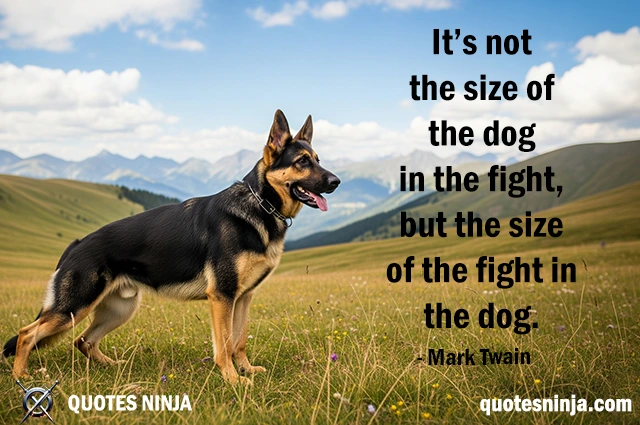
Courage Quote: “It is not the size of the dog in the fight, but the size of the fight in the dog.” is widely attributed to Mark Twain, but this is actually a common misattribution.
Deeper Meaning of Courage Quote
The quote, “It is not the size of the dog in the fight, but the size of the fight in the dog.” is often attributed to Mark Twain, and it’s essentially about the importance of inner strength and determination over physical size or appearance.
The phrase “It is not the size of the dog in the fight” refers to the fact that the dog’s physical size (or, by extension, a person’s external qualities or perceived abilities) isn’t what truly matters. Instead, “the size of the fight in the dog” emphasizes the determination, spirit, and willpower inside the dog (or person).
In a broader sense, it’s saying that success or victory in any challenge doesn’t depend on your external factors (like your resources, your stature, or your initial advantages), but rather on your resilience, perseverance, and grit. It’s not the physical size that matters, but how much fight, passion, or heart you bring to the situation.
In short, it’s about the power of inner resolve—showing that what’s inside counts more than what’s outside.
Here’s a story inspired by Courage Quote “It is not the size of the dog in the fight, but the size of the fight in the dog.”
Courage Story: “The Fight in the Mother“
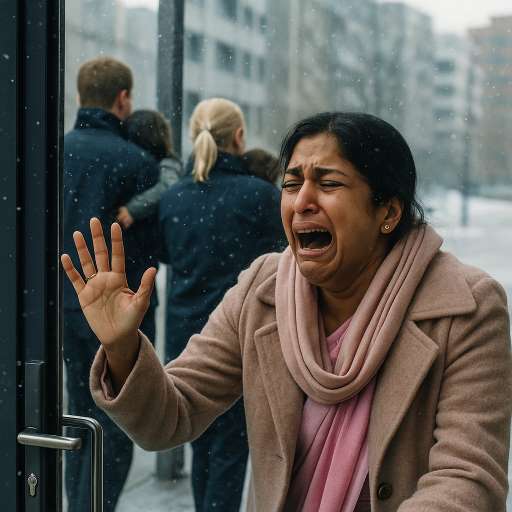
The Separation :
The air was cold in Stavanger, Norway, but Debika Chatterjee’s heart burned with the fire of a thousand suns. She was thousands of miles from the streets of Kolkata, wrapped in the silence of a foreign land where systems were stronger than sentiment, and rules weighed more than relationships. But she wasn’t afraid—not anymore.
Two months earlier, the world had collapsed around her. The Norwegian child welfare authorities had taken her children away—abruptly, without warning, without empathy. They called it protection. She called it a theft of love.
At first, Debika had begged.
She stood in clean government offices, hands folded, words trembling in broken English. “They are my children. I feed them, I sing to them, I teach them my language… I am their mother.” But the officers only shook their heads. They gave her documents she couldn’t read and reasons she couldn’t understand.
They spoke of mental health assessments, parenting standards, cultural differences. She heard only silence where her children’s laughter used to be.
Still, she did not crumble.
Instead, she transformed.
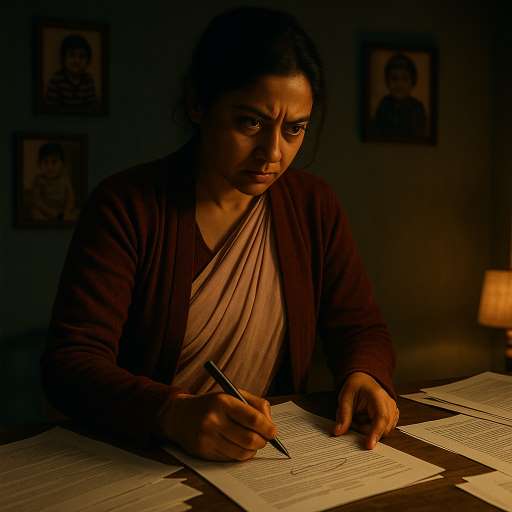
The Transformation Begins:
Debika, once shy and hesitant, began learning the system. She met lawyers, read Norwegian policies, spoke to journalists. Every door she knocked on initially closed in her face, but she kept knocking. Not because she was strong—but because she refused to let weakness stop her.
Everyone told her she didn’t stand a chance. Norway was powerful. The child welfare system was nearly impossible to beat. Foreigners had tried before. They had lost.
“Be realistic,” her husband told her.
“Don’t embarrass the family,” relatives whispered from back home.
But Debika wasn’t fighting for pride or reputation.
She was fighting for her children’s right to feel the warmth of her arms and the rhythm of her lullabies.
Slowly, things began to shift.
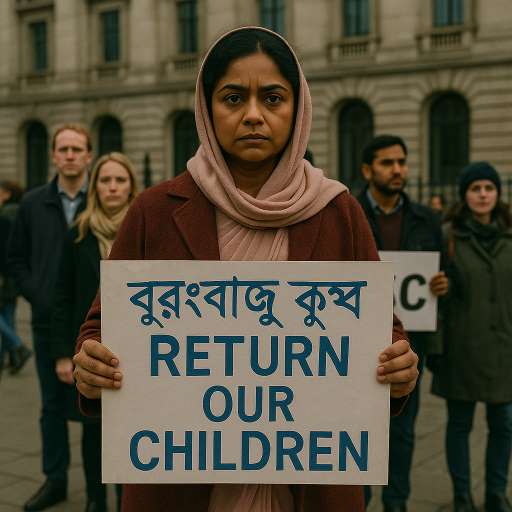
Against the System:
A Norwegian nurse, who had watched her interact with her children during a supervised visit, wrote a quiet letter in her support.
A Bengali expat organized a small protest outside the embassy.
A local journalist, curious about the emotional depth behind the legal jargon, interviewed her. The story made the headlines.
That was the turning point.
Suddenly, Debika wasn’t just a mother in mourning—she became a symbol.
A symbol of love against bureaucracy.
Of emotion against cold law.
Of courage in a world that often forgets to listen to the voiceless.
Even then, victory didn’t come easily.
There were court dates, appeals, psychological reviews, and moments where hope slipped through her fingers like sand. There were days she curled up in her apartment, holding her children’s photographs, willing herself not to break.
But she kept going.
Not because she had all the answers—
But because love doesn’t retreat.
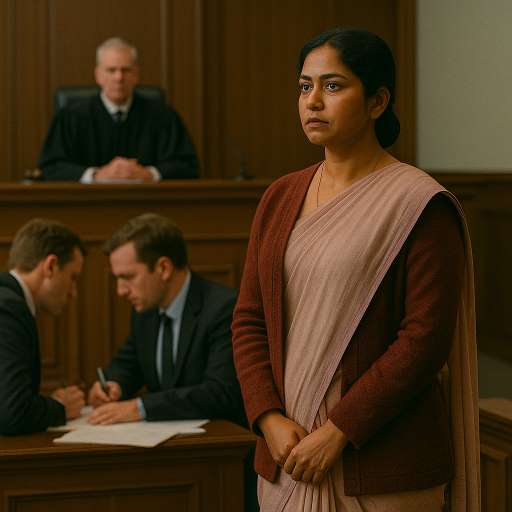
The Courtroom Stand:
One evening, as snow drifted gently outside the courtroom windows, the judge asked her a simple question:
“Why do you believe you are fit to raise your children?”
She stood up slowly. Her voice didn’t tremble this time.
“Because I don’t give up on them. Not even when everyone else did.”
A pause filled the room.
No legal term could argue with that.

The Reunion:
Finally, after months of resistance, resilience, and relentless effort—the verdict shifted in her favor. Not completely. Not immediately. But the ice began to melt.
Supervised custody turned into longer visits.
The court acknowledged the cultural bias that clouded earlier decisions.
Her children were allowed to return to India with her—back to their roots, back to the arms of the woman who never stopped fighting.
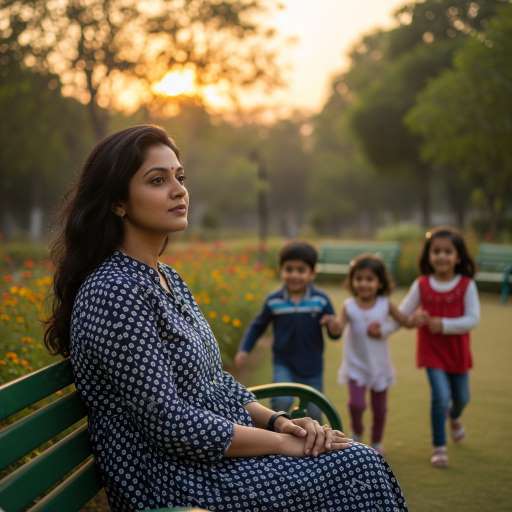
Voice of the Warrior:
The world applauded. Some called her heroic, others called her reckless.
But Debika didn’t need applause.
As her flight touched down in Kolkata and her children leaned into her with sleepy eyes and small smiles, she whispered words they didn’t yet understand:
“It’s not about how strong you look.
It’s about how much you’re willing to fight when everything is taken from you.”
Reflection:
Debika was not the largest presence in the courtroom.
She didn’t have legal power, fluent English, or political support.
But what she did have was the size of the fight inside her—
a fire that no law could extinguish,
a love that no government could label unfit.
Here is the ending of courage story from the quote “It is not the size of the dog in the fight, but the size of the fight in the dog.”
Moral of the Story:
Just like the quote says, “It is not the size of the dog in the fight, but the size of the fight in the dog.”
Debika didn’t win because she was powerful.
She won because she was determined, fearless, and full of heart.
In the end, it wasn’t Norway’s system or society that shaped the outcome.
It was a mother who refused to surrender.
To explore more on stories and dive into related ideas, be sure to check out the other posts where we cover all sort of stories related to quotes. Stay tuned for more…..
To explore more on quote topics, be sure to check out the other topics where we cover all categories of quotes. Stay tuned for more…..

